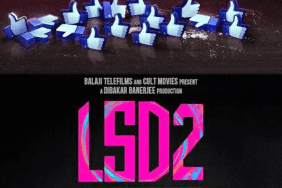
Cannes Film Festival chief Thierry Fremaux and president Pierre Lescure have both taken to tackling the issue of film criticism at 140 characters a time in a pair of new interviews.
Speaking with Le Film Francais (via Screen Daily courtesy of The Playlist), Fremaux says, “Writing a review, is about formulating and putting down a thought, and can’t be summarised in 140 characters written as soon as the credits have stopped rolling.” In terms of this year’s Cannes Film Festival, which he sees as “the first real ‘Twitter festival’ where everyone decided to say whatever happened to pass through their heads” he adds, “This created a permanent race against the clock between journalists and amateur neo-critics.”
The only thing I would disagree with here is that this isn’t the first time this has happened, far from it. Perhaps things have escalated over the years, but having been to both Cannes and the Toronto Film Festivals over the past several years, the first thing you’ll see are people burying their heads into their cell phones, tweeting their reactions. And I can’t claim to have never done it, and perhaps I would have done it more had I wanted to spend the money on roaming charges while I was in France and Canada, but perhaps I’m just a cheapskate.
Either way, I think Lescure, speaking with La Croix, gets to the heart of the matter adding, “Everything is accelerating. The instantaneity leads to hasty, excessive, definitive judgements. The critics are tweeting during projections. The nature and the function of the profession are changing. By acting like this, I’m not sure the profession is doing itself any good.” He’s right, but at the same time both Fremaux and Lescure are taking a very narrow view of the matter, failing to acknowledge the bigger picture.
At this point I’d say it’s hard to even call film criticism much of a profession, though there are certainly professionals among the ranks. A lot of times people ask me about running a movie-based website, how I got into it and how they should go about creating their own. Thing is, there is no secret to it other than just do it. Want to start a movie website? Go over to WordPress.com, get a URL and start typing, it’s that easy. In one way we are at the height of film discussion as so many people are attempting to become a part of it, but in another sense, Twitter commentary devalues the idea of actually critiquing and evaluating movies and this is largely in reference to movies that receive more scorn than praise. How many reviews of The Sea of Trees did you read after it premiered at Cannes compared to how many tweets did you see discussing how it was booed and how terrible it was?
Of course, the rush to get an opinion out there all has to do with online pageviews. Get an opinion out there early on Twitter, beef up your number of followers, hammer out a rushed review shortly thereafter and tweet the link. Share it, it goes viral, you’re a sensation, but in the end what is the quality of your work?
Before I ever started attending film festivals regularly I felt a certain level of frustration with critics that would rush out of a theater and hammer out a review in hopes of being first. However, once I finally got in the mix, I began to realize it’s not only about being first, but it’s also about being done with that review and making sure it’s filed because an hour later you’re going to be sitting down for another movie and before you know it you can be back-logged with 4-5 reviews to write, five hours of sleep ahead of you and 3-5 movies the next day. It also costs a lot of money to attend these festivals and every penny counts and every review you get online goes back to making that money back.
So, as much as I may agree with Fremaux, I can’t say he’s looking at the big picture when he says, “The degree of fantasy that Cannes arouses isn’t a licence to write any old thing. On the internet, an article is judged by the number of clicks it generates, civilization is making progress!”
I am not a fan of movies being boiled down to a series of tweets, but at the same time, I get it. Fremaux doesn’t, but there are solutions, ways to work within the new environment we’re living in. Festival films can be screened early for critics with embargoes in place, giving critics time to write their reviews and schedule them for publishing once the film premieres at the festival. Of course, just as Fremaux chastises online critics for wanting to be first, isn’t part of the prestige of the Cannes Film Festival being the festival that offers up the world premieres of some of the most highly anticipated movies of every year? Would Fremaux fight back at the idea of letting critics see a Cannes world premiere ahead of time? Would he say that lessens the prestige? Would that not be hypocritical?
I would love to see a little more respect for the medium find its way back into film criticism, but I think it’s going to take some give and take from both sides. In terms of your average weekly releases, studios are going to have to stop pretending critics only live in either New York or Los Angeles. In terms of festivals, perhaps invite critics to screen each film a day or two early, while still offering the chance to attend the films as they have been screened traditionally, though make sure embargoes are in place, both for social media and otherwise. Someone breaks embargo? Their press pass is pulled and they aren’t invited back. It’s as simple as that.
You want to stop the bleeding and the rush to be first? Level the playing field. It’s a new era of film criticism, but that doesn’t mean it’s the end of it.









